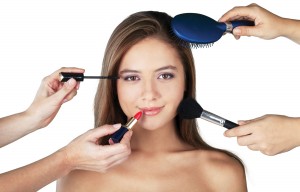Your wedding is by far one of the biggest days of your life and there is an awful lot of pressure on the bride to look her very best - not a hair out of place, not a blemish in sight and not a single chipped nail on her fingers or toes. For many women, this can mean numerous visits to beauty salons and hairdressers from as early as 12 months before the wedding. But can you be sure that the professional beautician you choose is the right person for the job?
With the beauty industry being unregulated, standards can vary widely from salon to salon. Choosing the right beauty therapist is therefore incredibly important, especially if you want to be the blushing bride you deserve to be. Aequitas Legal is an expert in handling claims of beauty negligence and understands what brides should consider before choosing somewhere to get their nails, hair or makeup done.

Suzanne Mason, a beauty negligence expert at the Manchester-based law firm, shares her tips on finding the right beauty therapist for your wedding day:
Be sure you can trust your wedding planner
Nowadays it’s much more common to have a wedding planner involved in the preparation of your big day, allowing you to take advantage of the hundreds of contacts they have for caterers, venues, dress designers and beauty therapists. However, many of these relationships are forged with a promise of discounts instead of quality, so be sure to do your own research and don't just go along with whoever your wedding planner suggests.
Take recommendations with a pinch of salt
Many people welcome recommendations from their friends and family, and although they won’t send you to a salon where they have had a bad experience, you shouldn’t rely solely on word of mouth, especially as individuals react differently to certain procedures. Although multiple recommendations may be more trustworthy, it’s worth taking a look at treatments yourself to make sure you’re compatible.
Do your research
As we mentioned earlier, the beauty industry isn’t regulated, which means salons can be run by unqualified and untrained therapists and stylists. A trusted professional will have recognised qualifications and will regularly attend training courses to develop their skills and knowledge, so don’t be afraid to ask about these when scoping out suitable treatments. You should also:
- Check if they have an insurance policy
- Ask about their past experience
- Enquire about a product portfolio
- Check to see if they do patch testing
You should also ask about the treatment you’re considering - what will it feel like? Are there any side effects? How will it look when it’s done?
Don’t skimp on costs
It’s important to make sure your budget fits into your choice of salon rather than finding a salon which fits into your budget. Paying that little bit extra for a treatment can ensure you’re not compromising service, quality or performance just to save a few extra pennies, as the repercussions could be a lot more damaging than an empty purse.
Be sure to ask for a test or trial
Not all salons use the same products for treatments, so if you’ve had a certain treatment in one place, it may not be carried out the same way in another. Be sure to ask for a trial well before your big day to make sure you are not allergic to any ingredients used.
You should request a patch test on certain treatments, including hair dyeing, perming and waxing, along with any procedures that use a glue. Checking for a reaction can save the huge disappointment of not looking the way you want to on your wedding day, so if a salon doesn’t agree to patch test, don’t use them.
Don’t forget the groom
Nowadays, men are getting almost as many beauty treatments as women prior to the ceremony, including pedicures and manicures and even threading. It’s vital that you ensure your fiance follows the same steps as above to ensure they are not left disappointed when you tie the knot.
If the worst happens and you suffer a reaction from a beauty treatment, seek medical attention immediately, informing the doctor or nurse about the procedures you’ve had. It’s also important you inform the therapist or stylist, as they may be able to provide you with details of the ingredients used.
You should also take photographs of any injuries, as these can be used if you wish to pursue a beauty negligence claim. Injuries are usually more prominent in the first few days of a reaction, so try and capture the injuries at their worst and continue to photograph them as they progress.
About Aequitas Legal
Aequitas Legal is a Manchester-based personal injury law firm that specialises in claims for beauty negligence, including hair dye burns, wax burns and nail treatments. To find out more about the firm’s services, visit www.aequitaslegal.co.uk.


Add new comment